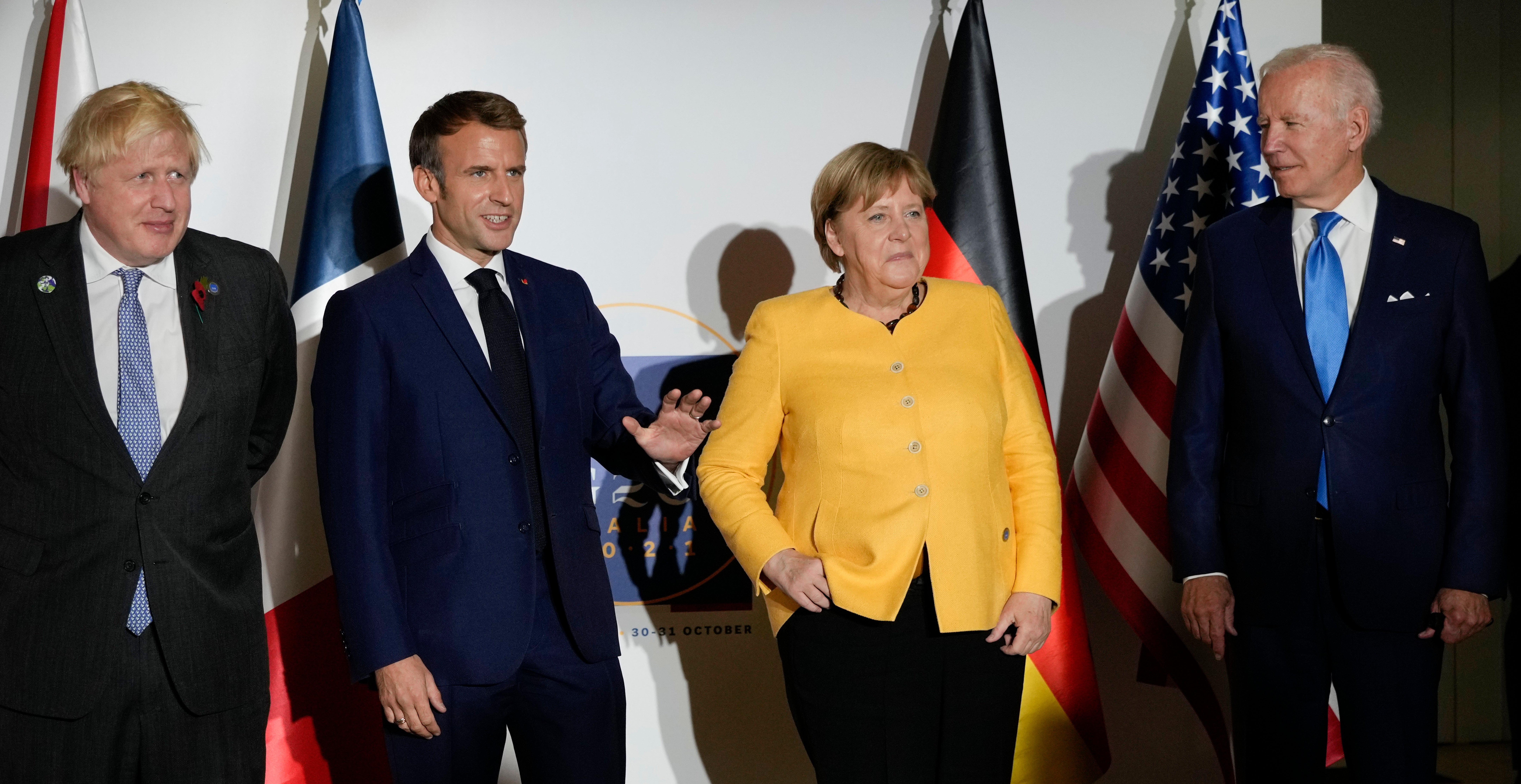G-20 leaders turn to climate change on last day of summit
Leaders of the world’s biggest economies are set to tackle climate change on the final day of a weekend summit in Rome that is widely expected to set the tone for a major conference on the same issue taking place in Glasgow over the next two weeks

Your support helps us to tell the story
From reproductive rights to climate change to Big Tech, The Independent is on the ground when the story is developing. Whether it's investigating the financials of Elon Musk's pro-Trump PAC or producing our latest documentary, 'The A Word', which shines a light on the American women fighting for reproductive rights, we know how important it is to parse out the facts from the messaging.
At such a critical moment in US history, we need reporters on the ground. Your donation allows us to keep sending journalists to speak to both sides of the story.
The Independent is trusted by Americans across the entire political spectrum. And unlike many other quality news outlets, we choose not to lock Americans out of our reporting and analysis with paywalls. We believe quality journalism should be available to everyone, paid for by those who can afford it.
Your support makes all the difference.Leaders of the world's biggest economies were set to tackle climate change Sunday, the final day of a weekend summit in Rome that is widely expected to set the tone for a major conference on the same issue taking place in Glasgow Scotland over the next two weeks.
The Group of 20 countries, which represent more than three-quarters of the world's greenhouse gas emissions, are looking for common ground on how to reduce emissions while helping poor countries deal with the impact of rising temperatures.
If the G-20 summit ends with only weak commitments, momentum could be lost for the larger annual talks in Glasgow, where countries from around the globe will be represented including poor ones most vulnerable to rising seas, desertification and other effects.
The future of coal, a key source of greenhouse gas emissions, has been one of the hardest things for the G-20 to agree on. However, the U.S. and other countries are hoping to get a commitment to end overseas financing of coal-fired power generation, said a senior U.S. official who spoke on condition of anonymity to preview President Joe Biden s plans.
Western countries have moved away from financing coal projects in developing countries, and major Asian economies are now doing the same: Chinese President Xi Jinping announced at the U.N. General Assembly last month that Beijing would stop funding such projects, and Japan and South Korea made similar commitments earlier in the year.
China has not set an end date for building domestic coal plants at home, however. Coal is still China’s main source of power generation, and both China and India have resisted attempts for a G-20 declaration on phasing out domestic coal consumption.
British Prime Minister Boris Johnson said before the Rome summit that he tried but could not get a commitment on a coal phase-out from Xi, who did not travel to the gathering.
In Glasgow, Johnson said, “we want these leaders … to focus on the commitments they can make, moving away from the use of fossil fuels, moving away from coal-fired power stations domestically."
Climate campaigners were hoping that rich G-20 countries would take steps to meet a long-standing but yet-to-be-fulfilled commitment to raise $100 billion annually to help developing countries move toward greener economies and adapt to the changing climate.
Prince Charles, a long-time environmentalist, was set to address the G-20 on Sunday.
G-20 leaders also discussed the COVID-19 pandemic and the uneven distribution of vaccines in the world. On Saturday they endorsed a global minimum tax on corporations, a linchpin of new international tax rules aimed at blunting fiscal paradises amid skyrocketing profits of some multinationals.
And after a meeting on the sidelines about Iran's nuclear program, Biden, Johnson, Germany’s Angela Merkel and France’s Emmanuel Macron made a joint statement expressing their “determination to ensure that Iran can never develop or acquire a nuclear weapon.”
They also voiced concern that Tehran “has accelerated the pace of provocative nuclear steps” after halting negotiations on a return to the nuclear agreement, formally known as the Joint Comprehensive Plan of Action.
___ Associated Press writers Jill Lawless, Josh Boak, Zeke Miller and David McHugh in Rome contributed to this report.